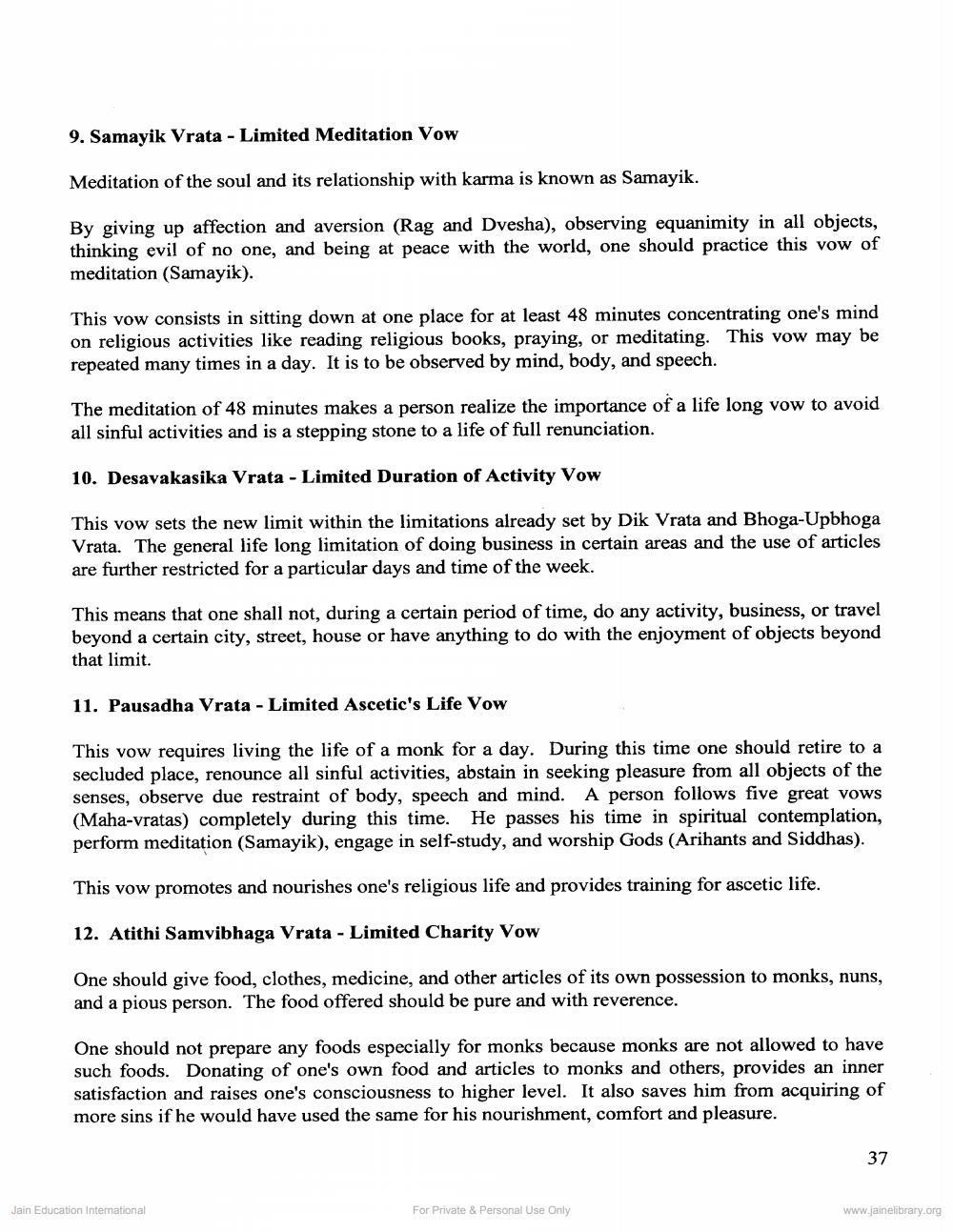________________
9. Samayik Vrata - Limited Meditation Vow
Meditation of the soul and its relationship with karma is known as Samayik.
By giving up affection and aversion (Rag and Dvesha), observing equanimity in all objects, thinking evil of no one, and being at peace with the world, one should practice this vow of meditation (Samayik).
This vow consists in sitting down at one place for at least 48 minutes concentrating one's mind on religious activities like reading religious books, praying, or meditating. This vow may be repeated many times in a day. It is to be observed by mind, body, and speech.
The meditation of 48 minutes makes a person realize the importance of a life long vow to avoid all sinful activities and is a stepping stone to a life of full renunciation.
10. Desavakasika Vrata - Limited Duration of Activity Vow
This vow sets the new limit within the limitations already set by Dik Vrata and Bhoga-Upbhoga Vrata. The general life long limitation of doing business in certain areas and the use of articles are further restricted for a particular days and time of the week.
This means that one shall not, during a certain period of time, do any activity, business, or travel beyond a certain city, street, house or have anything to do with the enjoyment of objects beyond that limit.
11. Pausadha Vrata - Limited Ascetic's Life Vow
This vow requires living the life of a monk for a day. During this time one should retire to a secluded place, renounce all sinful activities, abstain in seeking pleasure from all objects of the senses, observe due restraint of body, speech and mind. A person follows five great vows (Maha-vratas) completely during this time. He passes his time in spiritual contemplation, perform meditation (Samayik), engage in self-study, and worship Gods (Arihants and Siddhas).
This vow promotes and nourishes one's religious life and provides training for ascetic life.
12. Atithi Samvibhaga Vrata - Limited Charity Vow
One should give food, clothes, medicine, and other articles of its own possession to monks, nuns, and a pious person. The food offered should be pure and with reverence.
One should not prepare any foods especially for monks because monks are not allowed to have such foods. Donating of one's own food and articles to monks and others, provides an inner satisfaction and raises one's consciousness to higher level. It also saves him from acquiring of more sins if he would have used the same for his nourishment, comfort and pleasure.
Jain Education International
For Private & Personal Use Only
37
www.jainelibrary.org




